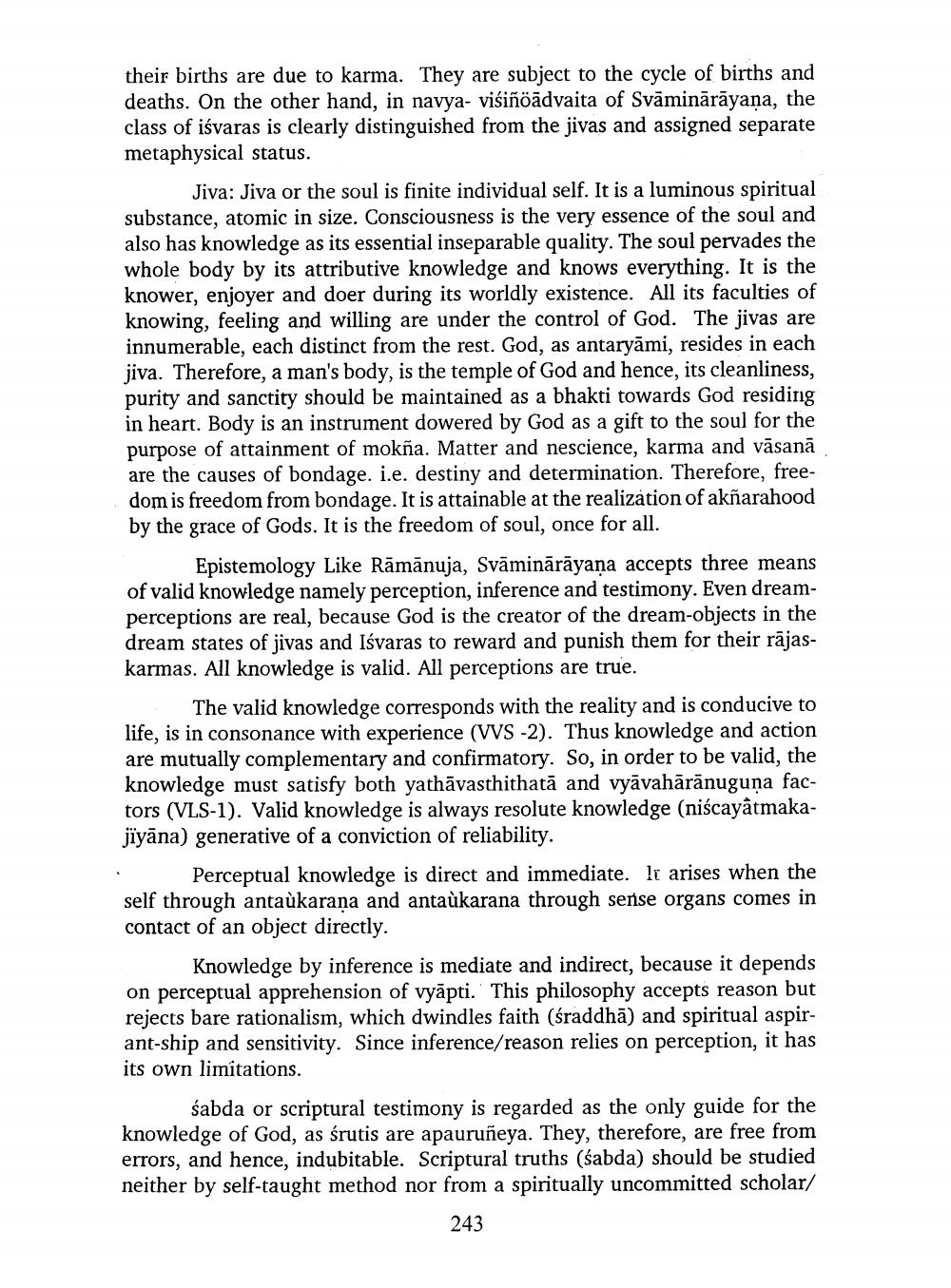________________
their births are due to karma. They are subject to the cycle of births and deaths. On the other hand, in navya- višiñöādvaita of Svāminārāyana, the class of iśvaras is clearly distinguished from the jivas and assigned separate metaphysical status.
Jiva: Jiva or the soul is finite individual self. It is a luminous spiritual substance, atomic in size. Consciousness is the very essence of the soul and also has knowledge as its essential inseparable quality. The soul pervades the whole body by its attributive knowledge and knows everything. It is the knower, enjoyer and doer during its worldly existence. All its faculties of knowing, feeling and willing are under the control of God. The jivas are innumerable, each distinct from the rest. God, as antaryāmi, resides in each jiva. Therefore, a man's body, is the temple of God and hence, its cleanliness, purity and sanctity should be maintained as a bhakti towards God residing in heart. Body is an instrument dowered by God as a gift to the soul for the purpose of attainment of mokña. Matter and nescience, karma and vāsanā are the causes of bondage. i.e. destiny and determination. Therefore, freedom is freedom from bondage. It is attainable at the realization of akñarahood by the grace of Gods. It is the freedom of soul, once for all.
Epistemology Like Rāmānuja, Svāminārāyana accepts three means of valid knowledge namely perception, inference and testimony. Even dreamperceptions are real, because God is the creator of the dream-objects in the dream states of jivas and Isvaras to reward and punish them for their rājaskarmas. All knowledge is valid. All perceptions are true.
The valid knowledge corresponds with the reality and is conducive to life, is in consonance with experience (VVS -2). Thus knowledge and action are mutually complementary and confirmatory. So, in order to be valid, the knowledge must satisfy both yathāvasthithatā and vyāvahārānuguņa factors (VLS-1). Valid knowledge is always resolute knowledge (niscayatmakajîyāna) generative of a conviction of reliability. • Perceptual knowledge is direct and immediate. It arises when the self through antaùkarana and antaùkarana through sense organs comes in contact of an object directly.
Knowledge by inference is mediate and indirect, because it depends on perceptual apprehension of vyāpti. This philosophy accepts reason but rejects bare rationalism, which dwindles faith (śraddhā) and spiritual aspirant-ship and sensitivity. Since inference/reason relies on perception, it has its own limitations.
sabda or scriptural testimony is regarded as the only guide for the knowledge of God, as śrutis are apauruñeya. They, therefore, are free from errors, and hence, indubitable. Scriptural truths (śabda) should be studied neither by self-taught method nor from a spiritually uncommitted scholar/
243




